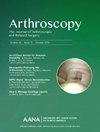现成的大语言模型(LLM)质量不高,无法提供医疗建议,而定制 LLM 可提供高质量的建议。
IF 4.4
1区 医学
Q1 ORTHOPEDICS
Arthroscopy-The Journal of Arthroscopic and Related Surgery
Pub Date : 2025-02-01
DOI:10.1016/j.arthro.2024.09.047
引用次数: 0
摘要
现成的 LLM 的内容准确性反映了无监管互联网的内容准确性,而这些生成式人工智能模型正是由互联网提供的。在常见肌肉骨骼疾病的治疗建议方面,错误率约为 30%,因此寻求专家意见仍然至关重要。然而,定制的 LLM 是一个绝佳的机会,可以从医学的许多专科和亚专科中注入利基、定制的专业知识。定制这些生成模型的方法大致可分为以下几类:提示工程、优先从特定数据领域检索相关信息的 "检索增强生成"(RAG)、将基本的预训练模型 "微调 "为针对医疗保健相关术语和缩略语进行细化的模型,以及 "代理增强"(agentic augmentation)、以及 "代理增强",包括将复杂任务分解成更小任务的软件、招募多个 LLM(有或没有 RAG)、优化输出、内部决定响应是否适当或充分,甚至将未满足的结果转给人工进行监督("打电话给朋友")。定制 LLM 为医生及其相关组织提供了一个难得的机会,在日益数字化的环境中重新树立权威,从而重新掌控我们的职业。本文章由计算机程序翻译,如有差异,请以英文原文为准。
Editorial Commentary: Off-the-Shelf Large Language Models Are of Insufficient Quality to Provide Medical Treatment Recommendations, While Customization of Large Language Models Results in Quality Recommendations
The content accuracy of off-the-shelf large language models (LLMs) mirrors the content accuracy of the unregulated Internet from which these generative artificial intelligence models are supplied. With error rates approximating 30% in terms of treatment recommendations for the management of common musculoskeletal conditions, seeking expert opinion remains paramount. However, custom LLMs represent an excellent opportunity to infuse niche, bespoke expertise from the many specialties and subspecialties within medicine. Methods of customizing these generative models broadly fall under the categories of prompt engineering; “retrieval-augmented generation” prioritizing retrieval of relevant information from a specific domain of data; “fine-tuning” of a basic pretrained model into one that is refined for health care–related vernacular and acronyms; and “agentic augmentation” including software that breaks down complex tasks into smaller ones, recruiting multiple LLMs (with or without retrieval-augmented generation), optimizing the output, internally deciding whether the response is appropriate or sufficient, and even passing on an unmet outcome to a human for supervision (“phone a friend”). Custom LLMs offer physicians and their associated organizations the rare opportunity to regain control of our profession by re-establishing authority in our increasingly digital landscape.
求助全文
通过发布文献求助,成功后即可免费获取论文全文。
去求助
来源期刊
CiteScore
9.30
自引率
17.00%
发文量
555
审稿时长
58 days
期刊介绍:
Nowhere is minimally invasive surgery explained better than in Arthroscopy, the leading peer-reviewed journal in the field. Every issue enables you to put into perspective the usefulness of the various emerging arthroscopic techniques. The advantages and disadvantages of these methods -- along with their applications in various situations -- are discussed in relation to their efficiency, efficacy and cost benefit. As a special incentive, paid subscribers also receive access to the journal expanded website.

 求助内容:
求助内容: 应助结果提醒方式:
应助结果提醒方式:


